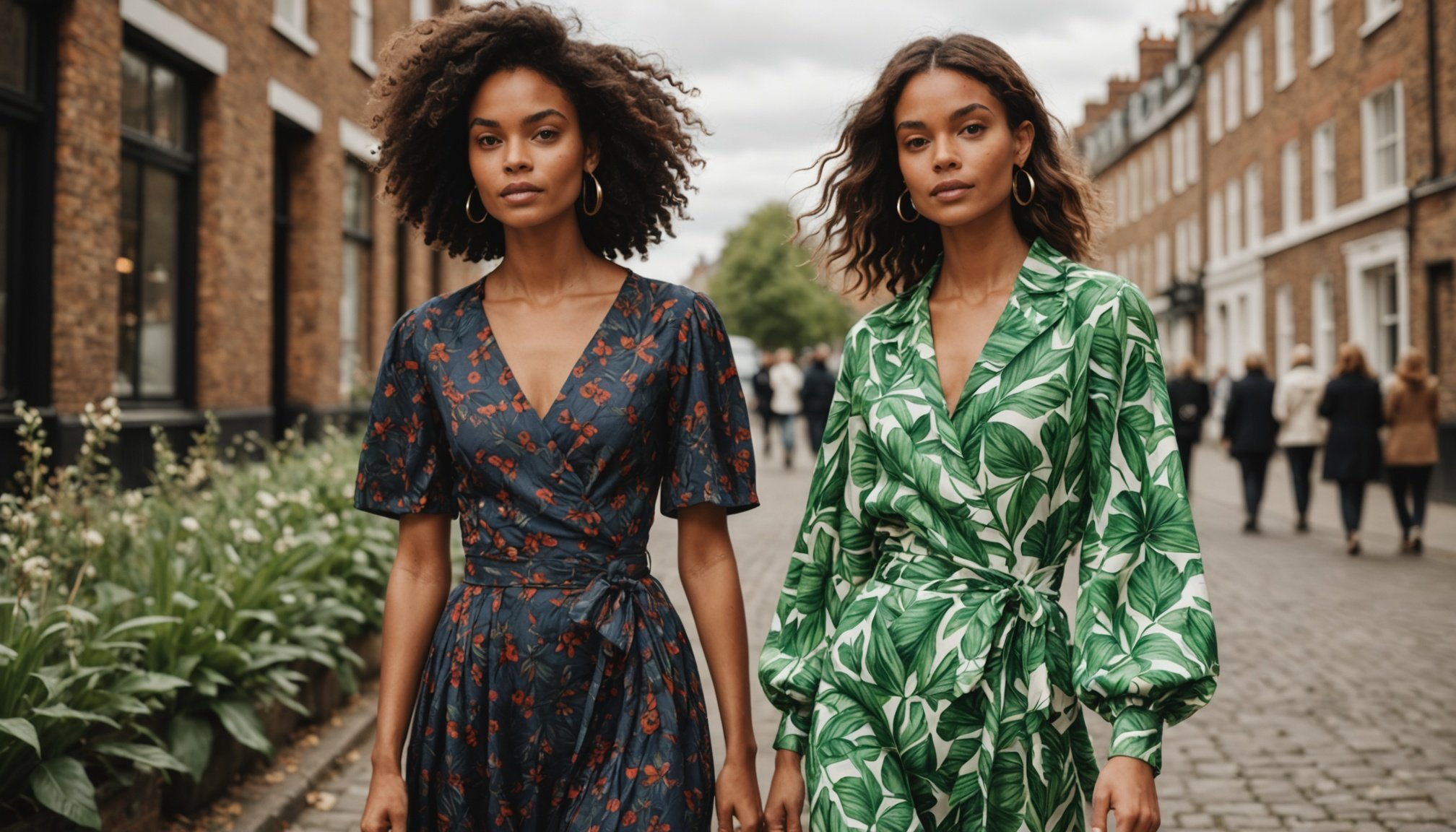Overview of Sustainable Fashion in the UK
Sustainable fashion UK prioritises the use of eco-friendly materials and ethical production practices. It addresses environmental and social challenges, reducing waste and pollution while promoting fair working conditions. By focusing on long-term ecological balance, it encourages the conservation of resources, aiming to meet current needs without compromising future generations.
In the UK, the sustainable fashion movement has gained momentum, with designers and brands increasingly adopting environmentally conscious approaches. This trend reflects a broader societal shift towards sustainability, as consumers become more aware of the impact their choices have on the planet. Today, the market sees a rise in eco-friendly clothing, where materials like organic cotton, recycled polyester, and Tencel are commonplace.
Also to read : Unleash Your Inner Explorer: The Definitive Style Guide for Chic Safari Adventures in UK National Parks
Sustainable choices significantly impact the environment by reducing carbon footprints, minimising waste, and preserving biodiversity. By opting for ethical brands and products, consumers contribute to a more sustainable planet, ensuring that fashion does not come at the cost of the environment. As awareness grows, the UK continues to innovate within this space, setting trends that highlight the importance of sustainable brands in the modern fashion narrative.
Top Sustainable Fashion Brands in the UK
Exploring the landscape of eco-conscious clothing, the UK boasts several leading names in sustainable fashion. These ethical brands are celebrated for their commitment to environmental stewardship and innovative design.
Also to see : Unleash Your Festival Vibe: Essential Fashion Hacks for Flaunting Swing Dresses at UK Music Festivals
Brand A: [Brand Name]
This brand has carved a niche with its profound dedication to eco-friendly practices. Established years ago, its journey reflects a persistent commitment to sustainability. A standout feature includes their use of organic and recycled materials, ensuring minimal environmental impact. Their collections often feature versatile styles, perfect for building a timeless wardrobe with ethical choices.
Brand B: [Brand Name]
Championing ethical fashion, Brand B’s ethos revolves around transparency and social responsibility. They offer a wide array of products, from casual wear to eco-friendly accessories. Known for their durability and quality, they promise long-lasting wear. Their unique styles frequently become customer favourites, embodying a blend of innovation and tradition.
Brand C: [Brand Name]
Brand C is at the forefront of sustainable fashion innovation. They’ve launched several impactful community initiatives, attempting to close the loop on fashion waste. Seasonal collections are curated with eco-friendly materials, leveraging cutting-edge techniques to produce stylish, sustainable garments. Their approach not only tackles environmental issues but also champions communal growth.
Style Recommendations from Sustainable Brands
Sustainable fashion offers endless avenues for stylish, eco-friendly styles suitable for any occasion. By thoughtfully combining pieces, you can create versatile outfits that are not only trendy but also environmentally conscious.
For a casual day out, pair a relaxed organic cotton tee with jeans made from recycled denim. Add a lightweight Tencel jacket to handle changing weather, and finish the look with biodegradable sneakers. This mix ensures comfort while prioritising sustainable choices.
For an office-appropriate ensemble, choose a tailored jacket and trousers made from hemp or linen. These materials boast durability and breathability, ensuring a professional yet comfortable attire. Opt for a simple, chic recycled silk blouse underneath for a touch of elegance, and complete the look with reclaimed leather shoes.
Accessories play a significant role in emphasising sustainable outfits. Consider items like a cork wallet or belt, hemp tote bags, and jewellery crafted from recycled metals. These elements enhance your sustainable wardrobe, perfectly blending fashion with function.
Innovative ways to integrate these pieces keep your wardrobe fresh and engaging while advocating for eco-friendly trends. By reimagining your clothing choices, you participate in a fashion movement dedicated to sustainability and style.
Challenges Facing Sustainable Fashion Brands
Navigating the landscape of sustainable fashion involves confronting several hurdles. A common misconception is the bias that eco-conscious clothing lacks the aesthetic appeal or versatility of mainstream fashion. This stereotype undermines the perceived value of sustainable brands, making it challenging to attract a broader consumer base.
Financial constraints pose another significant challenge. Sustainable practices often require a higher initial investment due to eco-friendly materials and ethical production methods, raising production costs. This financial burden can deter smaller brands from entering the ethical fashion scene, creating a market imbalance where established names can thrive more easily.
Educating consumers about the benefits of ethical fashion is crucial yet complex. Insufficient awareness and understanding can hinder the shift toward sustainability, as consumers might prioritize cost over environmental impact. Bridging this knowledge gap is essential for driving demand for sustainable options, incentivising brands to continue eco-friendly innovations.
Despite these challenges, the persistent growth in consumer interest indicates a promising future. As awareness increases, financial and educational obstacles are being addressed, gradually improving the market landscape. Effective communication and transparency from brands can further enhance consumer engagement, fueling the transition toward a more sustainable fashion industry.
The Future of Sustainable Fashion in the UK
Harnessing exciting possibilities, the future of sustainable fashion in the UK is anchored on innovation and growing consumer consciousness. As future trends in this field unfold, they offer a glimpse into a transformative era in fashion. Key developments point towards a robust incorporation of technology to enhance sustainability in fashion processes.
Digital tools, like AI and blockchain, are being employed to optimise eco-friendly supply chains. They help mitigate waste and ensure transparency, fostering ethical fashion that consumers trust. Embracing eco-fashion is not merely a trend but a commitment to environmental stewardship.
Consumer demand for eco-friendly options will likely propel the market into uncharted territories. More individuals are seeking authenticity in their purchases, prioritising brands that reflect their values. As sustainability becomes synonymous with fashion, brands are compelled to innovate, offering stylish yet environmentally considerate collections.
Excitingly, innovation continues to drive changes. From fabric innovations to circular economies, the focus remains on reducing waste and promoting sustainability. By fostering these developments, the UK sets a remarkable example for the global fashion industry, showcasing how eco-conscious choices can be seamlessly woven into the fabric of our daily lives.











